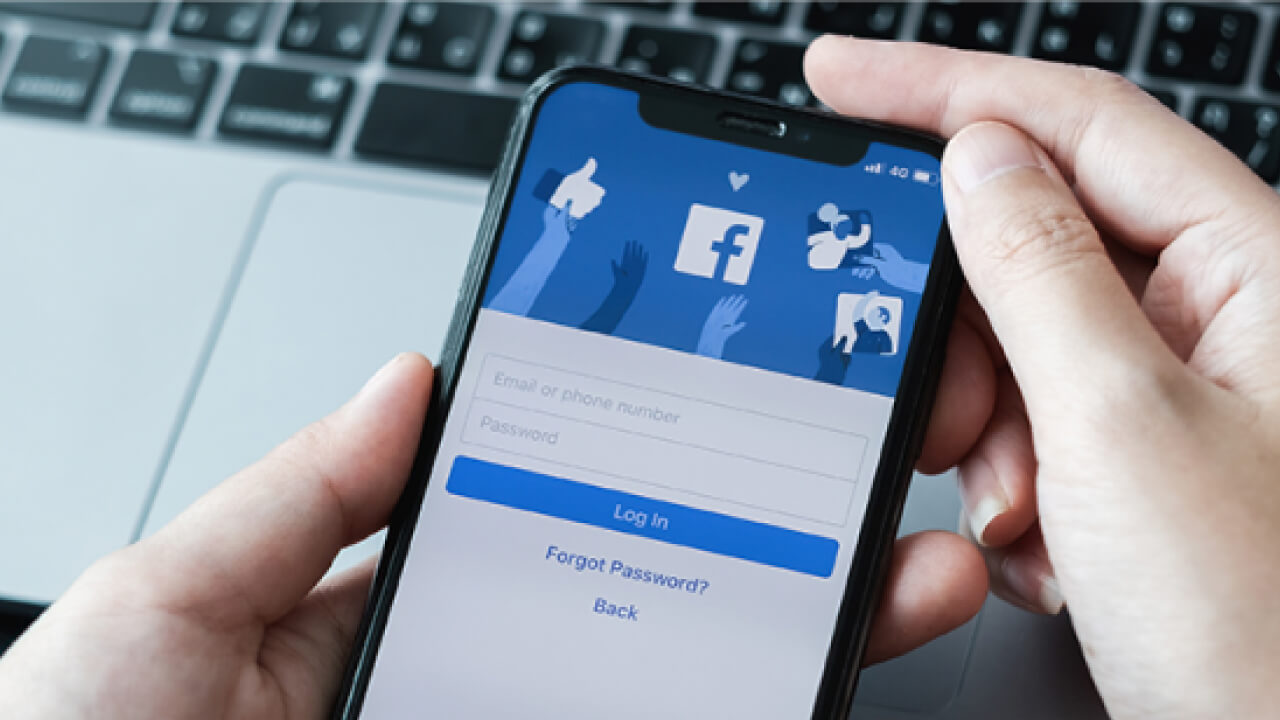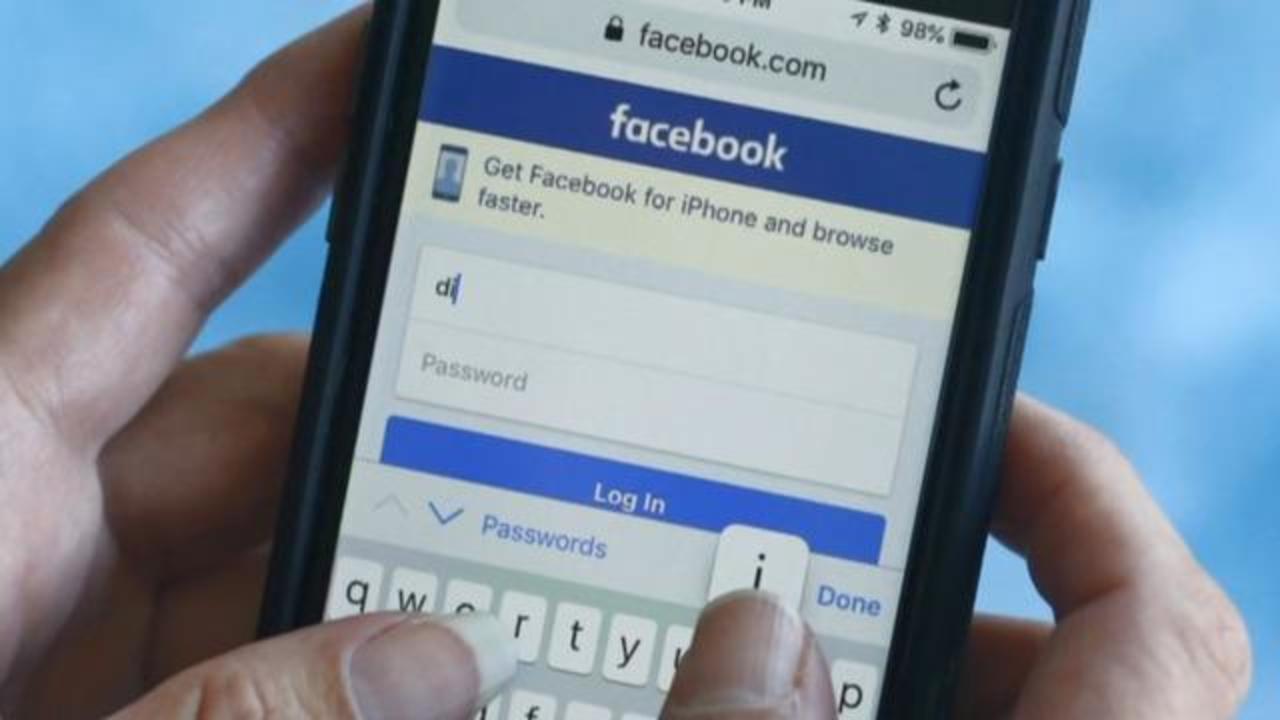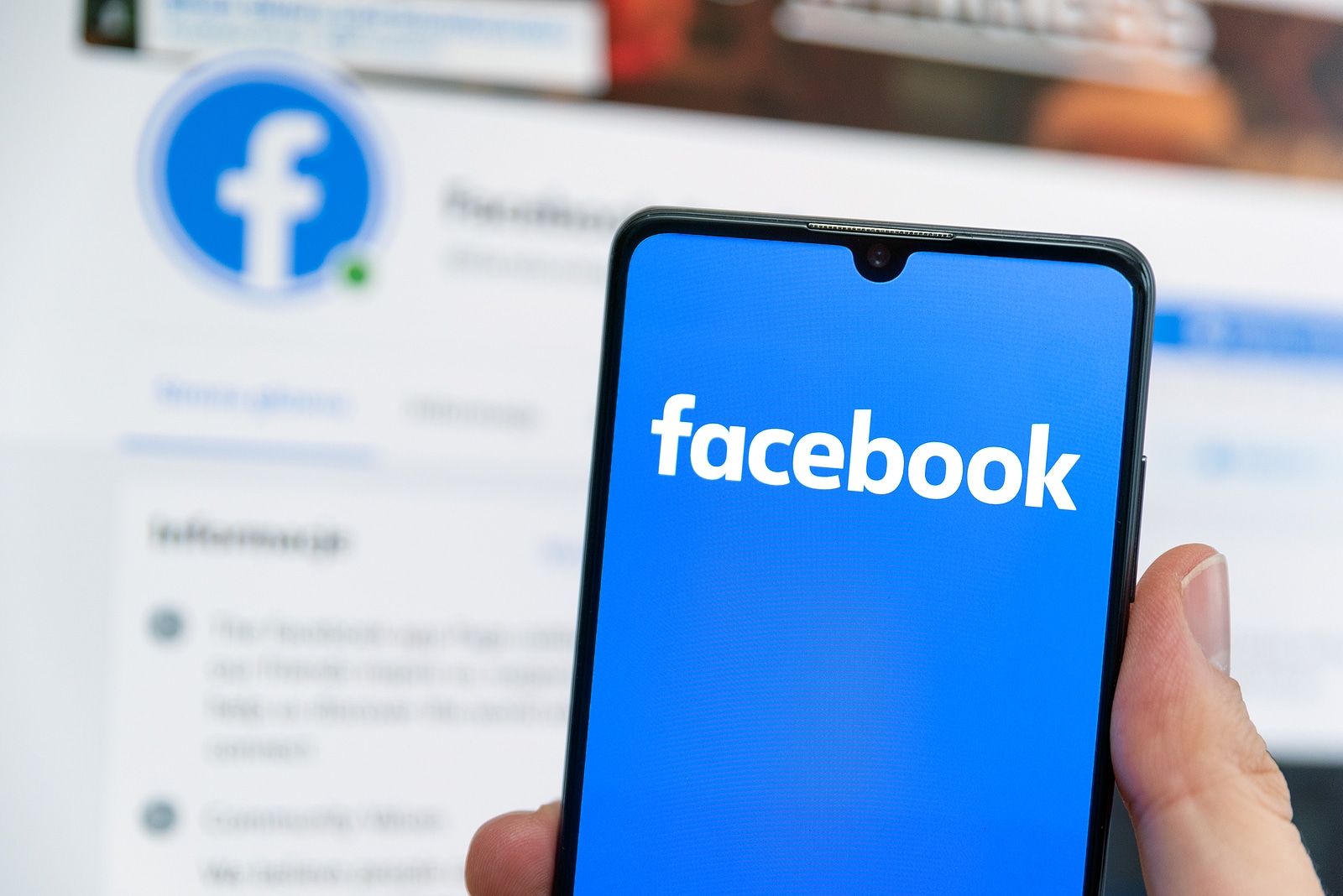
In an age dominated by digital connectivity, the security of our online identities is paramount. Social mediaplatforms, such as Facebook, have become integral parts of our lives, serving as conduits for communication, connection, and sharing.
Discovering that your Facebook account has been compromised can be distressing, but fear not - this guide is designed to provide you with a comprehensive step-by-step approach how to recover hacked Facebook account. Unfortunately, this increased reliance on social networks also makes us vulnerable to the threat of hacking. By following these instructions and taking proactive measures, you can reclaim control of your digital presence and fortify your online security.
How To Tell If Your Facebook Account Was Hacked?
Identifying whether your Facebook account has been compromised is crucial for swift action and enhanced security. Here are key signs to help you determine if your Facebook account was hacked:
- Unusual Login Activity -Check your "Login Activity" in Facebook settings. If you spot unfamiliar locations or devices accessing your account, it's a red flag.
- Unexpected Friend Requests or Messages -Hacked accounts often send out friend requests or messages without the user's knowledge. If friends report receiving requests from you that you didn't send, investigate immediately.
- Unexplained Posts or Changes - Review your profile for any posts, status updates, or changes to personal information that you didn't make. Hackers may alter these to deceive or spread malicious content.
- Unknown Apps or Permissions -Check the list of apps connected to your Facebook account. If you find unrecognized applications or suspicious permissions, your account might be compromised.
- Email or Password Changes -If you receive notifications about email or password changes that you didn't initiate, your account's security may be compromised.
- Inability to Log In -If you can't access your account despite using the correct credentials, it could indicate unauthorized access or a potential hack.
- Unusual Notifications -Be alert to notifications about unrecognized devices or sessions accessing your account. Facebook will alert you to such activities.
- Unexpected Deactivation -If your account is deactivated without your knowledge, it could be a sign of unauthorized access. Check Facebook's Help Center for information on account status.
- Check Sent Messages -Review your sent messages for any correspondence you didn't initiate. Hacked accounts may send spam or phishing messages to contacts.
- Review Security Settings -Regularly check and update your security settings. If you notice changes you didn't make, investigate immediately.
If you observe any of these signs, take immediate action to secure your account. Change your password, enable two-factor authentication, and report the incident to Facebook through their Help Center. Swift response is key to minimizing potential damage and regaining control of your Facebook account.
What To Do If Your Facebook Account Hacked?
Discovering that your Facebook account has been hacked can be a distressing experience, but swift and decisive action is key to reclaiming control and securing your online presence. Here's a step-by-step guide on what to do if your Facebook account is compromised:
Reset Your Password
- Click on “Forgot password?” in the login window.
- Enter the email associated with your Facebook account.
- Choose a method for receiving a recovery code: via Google account, email, or SMS. If access to these methods is unavailable, click on “No longer have access to these?” and proceed with identity verification.
- Navigate to Facebook’s settings panel.
- Tap on “Settings”-> “Passwords and Security” and find “Login.” Click on “Change Password.”
- If the hacker has changed your password: Click on “Forgot password?” in the login window. Enter the email associated with your Facebook account. Choose a method for receiving a recovery code: via Google account, email, or SMS. If access to these methods is unavailable, click on “No longer have access to these?” and proceed with identity verification.
Recover External Accounts
- Log into your Facebook account.
- Visit the website or service associated with the external account.
- Select Facebook when asked about the recovery method.
- Follow the instructions on the "Account Recovery" Facebook page.
Inform Facebook Immediately
- Report the hacking attempt to Facebook.
- Choose the most suitable option based on your situation and follow the on-screen instructions.
- Provide as much detail as possible to aid Facebook's security team in the investigation.
Review And Secure Your Account
- Check for any unauthorized changes to your profile, posts, or connected apps.
- Update your security settings, including enabling two-factor authentication for an added layer of protection.
- Log out of active sessions on unfamiliar devices.
Monitor Your Account
- Keep a close eye on your account for any unusual activity even after recovery.
- Report any suspicious behavior promptly to Facebook.
Educate Yourself On Security Best Practices
- Stay informed about the latest security threats.
- Regularly update passwords for all your online accounts.
- Be cautious of phishing attempts and suspicious links.
Secure Associated Email Account
- Change the password for the email account linked to your Facebook profile.
- Enable two-factor authentication for added security.
By following these steps, you can take swift and effective measures to recover your hacked Facebook account, minimize potential damage, and fortify your online security. Remember, proactive action is crucial in safeguarding your digital presence.
What To Do If You Still Have Access To Your Facebook Account?
If you suspect that your Facebook account may be compromised or have noticed unusual activity, but you still have access to your account, taking immediate action is essential to prevent further unauthorized access and secure your account.
Change Your Password
The first and most crucial step is to change your password. Navigate to the "Settings" panel on Facebook, then go to "Passwords and Security." Under "Login," select "Change Password." Choose a strong, unique password that combines letters, numbers, and symbols.
Review Recent Activity
Check your account's "Login Activity" to review recent logins and devices that accessed your account. If you notice any unfamiliar locations or devices, it could be an indication of unauthorized access. If necessary, log out of all sessions except your current one.
Enable Two-Factor Authentication (2FA)
Enhance your account security by enabling two-factor authentication. This adds an extra layer of protection by requiring a verification codein addition to your password for access. You can set this up in the "Two-Factor Authentication" section under "Security and Login" in your Facebook settings.
Assess App Permissions
Check the list of apps and websites connected to your Facebook account. Remove any that you don't recognize or trust. This step is crucial to prevent third-party apps from accessing your account without your knowledge.
Update Security Settings
Take the time to review and update your security settings. Ensure that your email address and phone number associated with the account are current. Facebook may use these to notify you of suspicious activity.
Monitor For Unusual Activity
Keep a vigilant eye on your account for any unusual posts, friend requests, or messages. If you notice any suspicious activity, investigate immediately and report it to Facebook.
Inform Yourself On Security Best Practices
Stay informed about common phishing techniques and other security threats. Be cautious about clicking on unfamiliar links or providing personal information in response to unsolicited messages.
Report Suspicious Activity To Facebook
If you encounter ongoing issues or observe persistent suspicious activity, report it to Facebook through their Help Center. Facebook's security team can investigate the matter further.
How To Recover A Hacked Facebook Account That You’ve Been Locked Out Of?
Discovering that your Facebook account has been hacked and locked out can be an unnerving experience. The process of recovering a compromised account can be challenging, but with the right steps, you can regain control and fortify your account against future intrusions.
Open Facebook On All Devices
Start by checking all the devices where you usually log in to Facebook. If the hacker forgot to log you out of any of them, you might still have access. Open the Facebook app or webpage on each device and see if any of them are still logged in.
Find Your Account
If you are unable to log in, initiate the recovery process on a familiar computer or mobile device. Visit Facebook and enter the email address or phone number associated with your account. If unsuccessful, try using your name or Facebook profile URL in the search function. If you find your account, select it to begin the password reset process.
Change The Email Address Connected To Your Facebook Account
If the system locates your account, it may send a verification code to the email or phone number linked to the account. If you no longer have access to these, select "No longer have access to these" and "Cannot access my email."
Choose "My account is compromised." Enter your current or a previous password, select "Secure my account," and choose "I cannot access these." If needed, use your mobile device to log in via the Facebook app, select "Forgot password," and follow the prompts.
If these steps don't resolve the issue, you may need to fill out a form, provide details for a change to your account's primary address, and submit a photo ID to Facebook support.
Set Up A Recovery Email Address
Upon regaining access, immediately go to "Settings & Privacy" > "Settings" > "General." Edit or delete any contact information that is not recognized as your own.
Clean Up Your Account Settings
Navigate to "Security and Login." Set up two-factor authentication (2FA) using an authenticator app on your mobile device. In "General," remove any unfamiliar contact information and review devices and locations under "Where you're logged in." Finally, sign up for alerts in the "Setting up extra security" section to be notified of unusual sign-ins.
By following these steps, you not only recover your hacked Facebook account but also implement crucial security measures to prevent future compromises. Regularly monitor your account for any suspicious activity and stay informed about the latest security best practices.
How To Prevent Your Facebook Account From Being Hacked Again?
Recovering from a Facebook account hack is crucial, but taking proactive steps to prevent future breaches is equally important. Here are comprehensive measures to enhance your Facebook account security:
Strengthen Your Password
- Create a robust password that combines uppercase and lowercase letters, numbers, and symbols.
- Regularly update your password to maintain its strength.
Review App Permissions
- Navigate to "Settings and Privacy" > "Settings" > "Permissions" > "Apps and Websites."
- Remove any apps or websites that you no longer use or trust.
Two-Factor Authentication (2FA)
- Enable 2FA to add an extra layer of security.
- Access "Settings and Privacy" > "Settings" > "Password and Security" > "Two-Factor Authentication."
Adjust Privacy Settings
- Restrict the visibility of your profile by changing settings from "Public/Everyone" to "Friends," "Friends of Friends," or "Only Me."
- Control who can find and contact you under "Settings and Privacy" > "Settings" > "Audience and Visibility."
Limit Audience For Posts
- Customize the audience for your posts to minimize publicly available information.
- Navigate to "Settings and Privacy" > "Settings" > "Audience and Visibility" > "Posts."
Enable Security Alerts
- Receive alerts for unrecognized logins by going to "Settings and Privacy" > "Settings" > "Password and Security" > "Setting up Extra Security."
- Opt to receive alerts via email or Facebook notification.
Take Extra Browsing Precautions
- Verify links and attachments for reliability before clicking.
- Review friend lists and pages you follow regularly.
- Exercise caution when communicating with unfamiliar individuals and avoid sharing sensitive information.
Monitor Account Activity
- Be vigilant for automatic log-offs, unfamiliar comments, messages, or unrecognized purchases.
- Regularly check your account activity for any discrepancies.
Stay Informed
- Stay updated on Facebook security issues through reliable news sources.
- Continuously educate yourself on evolving security threats and best practices.
Consider Deactivating Or Deleting Your Account
If the risk of information leakage becomes a concern, consider deactivating or deleting your Facebook and Messenger accounts.
Use A VPN
Employ a virtual private network (VPN) to hide your IP address and encrypt your traffic, especially when connecting to public networks.
Taking a proactive approach to your Facebook account security is essential in today's digital landscape. By implementing these measures and staying informed, you significantly reduce the risk of falling victim to future hacking attempts.
How To Report Someone Impersonating You On Facebook?
If you discover that someone is impersonating you on Facebook, it's crucial to take swift action to protect your identity and ensure that the impersonation is addressed. Here's a step-by-step guide on how toreport someone impersonating you on Facebook:
- Visit The Impersonation Reporting Form- Go to Facebook's Impersonation Reporting Form by following this link: Facebook Impersonation Reporting Form.
- Select The Appropriate Option- On the reporting form, select the option that best describes your situation. In this case, choose "Someone is pretending to be me."
- Provide Your Information- Fill in the required fields, providing details such as your full name, the email address or mobile number associated with your Facebook account, and a link to the profile of the person impersonating you.
- Additional Details - In the "Additional Information" section, provide any relevant details about the impersonation. Include specific information about the fake account, such as the username, display name, and any content or interactions that are concerning.
- Attach Supporting Documents- If you have any supporting documents that prove your identity, such as a government-issued ID or passport, you can attach them to the report. This can help Facebook verify your identity and expedite the resolution.
- Submit The Report- Once you've filled in all the necessary information, click on the "Send" or "Submit" button to send the report to Facebook.
- Monitor Your Support Inbox- After submitting the report, monitor your Facebook Support Inbox for any updates from Facebook. They may request additional information or provide updates on the progress of the investigation.
- Report To Law Enforcement - If the impersonation involves illegal activities or poses a significant threat, consider filing a report with your local law enforcement. Provide them with the details of the impersonation and any relevant information you have.
- Secure Your Account- While the report is being processed, take steps to secure your own Facebook account. Change your password, enable two-factor authentication, and review your privacy settings.
- Encourage Others To Report- Encourage friends and followers to report the impersonation as well. This collective effort can strengthen the case and prompt quicker action from Facebook.
Facebook takes impersonation seriously, and they typically investigate such reports promptly. By following these steps and providing detailed information, you increase the likelihood of a swift resolution to the issue.
How To Protect Your Facebook Account From Hackers?
- Regularly Review Third-Party App Permissions- Periodically review and revoke access for third-party apps connected to your Facebook account. These apps may have access to your data and can be potential vulnerabilities.
- Beware Of Public Wi-Fi- Avoid logging in to your Facebook account when connected to public Wi-Fi networks, as these networks may lack proper security measures. If necessary, use a virtual private network (VPN) to encrypt your connection.
- Set Up Login Alerts- Enable login alerts to receive notifications via email or text whenever your account is accessed from an unrecognized device or location. This provides an additional layer of awareness.
- Limit Profile Information- Minimize the personal information displayed on your public profile. Consider sharing only essential details and avoid oversharing sensitive information that could be exploited.
- Use Strong Security Questions- If you've set up security questions for your account recovery, choose questions with answers that are not easily discoverable or publicly available. Make the answers unique and hard to guess.
- Familiarize Yourself With Facebook Security Features- Stay informed about the security features offered by Facebook. Explore features such as the Security Checkup, which guides you through essential security settings.
- Be Wary Of Friend Requests From Strangers- Exercise caution when accepting friend requests. Hackers may create fake profiles to gain access to your information. Only accept requests from individuals you know and trust.
- Regularly Clear Browser Cookies- Clear your browser cookies regularly to remove stored login information. This helps ensure that your Facebook login credentials are not easily accessible if someone gains access to your device.
- Review Tagging Settings- Adjust your tagging settings to control who can tag you in posts and who can see posts you're tagged in. This prevents unauthorized individuals from linking your profile to potentially malicious content.
- Secure Your Mobile Devices- Ensure that your mobile devices, where you likely access Facebook, have updated security measures. Set up screen locks, biometric authentication, or passwords to prevent unauthorized access.
- Enable Account Recovery Contacts- Add trusted contacts for account recovery. These contacts can help you regain access to your account if you ever get locked out. Configure this under "Settings and Privacy" > "Settings" > "Security and Login."
- Verify Emails From Facebook- Always verify the authenticity of emails claiming to be from Facebook. Avoid clicking on links in suspicious emails, and instead, navigate directly to the Facebook website to address any account-related concerns.
- Report Suspicious Content- Report any suspicious or fake profiles, posts, or messages to Facebook. This helps the platform identify and address potential security threats.
Frequently Asked Questions
How To Recover A Hacked Facebook Account?
If your Facebook account is hacked, visit the Facebook Help Center and follow the steps for account recovery. Change your password, enable two-factor authentication, and report the issue to Facebook.
How To Delete A Facebook Account Permanently?
To permanently delete your Facebook account, go to "Settings" > "Your Facebook Information" > "Deactivation and Deletion." Choose "Delete Account" and follow the instructions.
How To Create A Facebook Business Page?
To create a Facebook businesspage, go to "Create" on the top right of Facebook, select "Page," and follow the prompts to set up your businesspage with information, images, and details.
How To Recover Deleted Messages On Facebook?
Once a message is deleted on Facebook, it cannot be recovered. However, if you've archived the conversation, you can find it in the "More" section on the Messenger app or website.
How To Stop Receiving Game Requests On Facebook?
To stop receiving game requests, go to "Settings" > "Apps and Websites," then under "Game and App Notifications," turn off "Activity on a Game or App."
In A Nutshell
Recovering a hacked Facebook account is not only about regaining access but also about fortifying your digital fortress against future intrusions. The steps outlined in this guide emphasize the importance of swift action, vigilance, and a commitment to security best practices. Remember, your online presence is a valuable asset, and safeguarding it requires a proactive and informed approach.
By securing not only your Facebook account but also associated email accounts and practicing heightened awareness of potential threats, you can navigate the digital landscape with confidence. Stay secure, stay vigilant, and reclaim control over your digital narrative.


